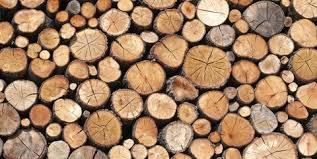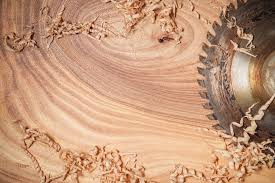Most people are aware of the different types of trees and the ways in which these lose their leaves. However, less people are aware of the differences between hard and soft wood.

All trees grow from seeds over varying degrees of time. Given the right soil conditions, access to sunlight and water these trees can grow into incredible specimens and there are trees that have been around for well over 100 years here in the UK.
So, what is the difference between hard and soft wood?
Firstly, the terminology can be a little deceiving as hard wood is not actually that much harder than softer wood. Balsa wood is categorised as a hard wood but in terms of its density it is in fact one of the lightest woods that we have come across.
In actual fact the way a tree is categorised into one of these sections is based on the seeds that it came from and produces itself each year. Hardwood trees are in fact also deciduous trees and they produce seeds that are covered in one way or another – think oaks and acorns! Hardwood trees tend to be much slower growing than their softwood counterparts, which is in part due to the way in which they release their seeds as well as the structure of the wood. The grain of hardwood differs in that water is channeled through the wood in pore like structures, which then creates the grain structures. However, softwood trees, which tend to be evergreen trees, produce seeds that fall to the ground with no outer covering on them – conifer trees. They are quicker growing and the water is channeled through the tree without the visibility of pores. This again affects the way that the grain appears when the wood is cut.

Hardwoods tend to be used in the construction of hard wearing items and high quality furniture and decking, whereas softwood is thought to make up around 80% of all the timber that is used. It tends to be used in the construction of furniture, doors, window frames and is found in MDF boards.
If you are looking for timber for a specific project or construction need it is worth talking to a professional such as Timber Merchants Southampton way http://www.timbco.co.uk/ who are able to give you advice on the best timber to use and can supply that directly to you. You can then focus on drawing up the plans and designs for your project and gathering together the tools that you will need to get started.